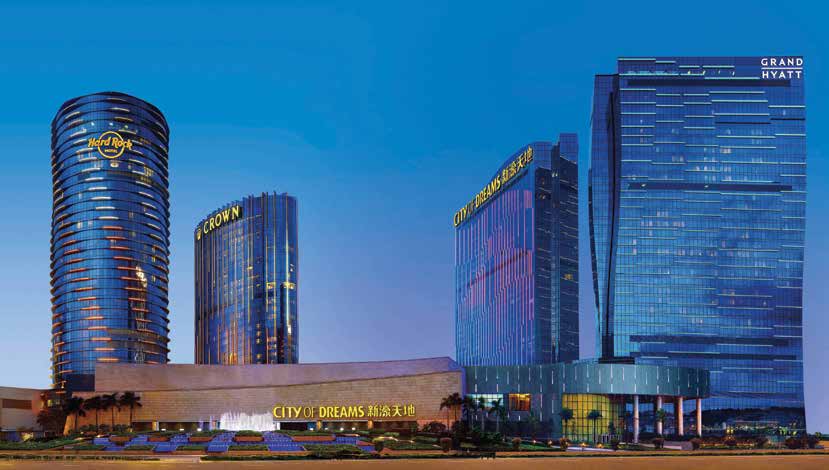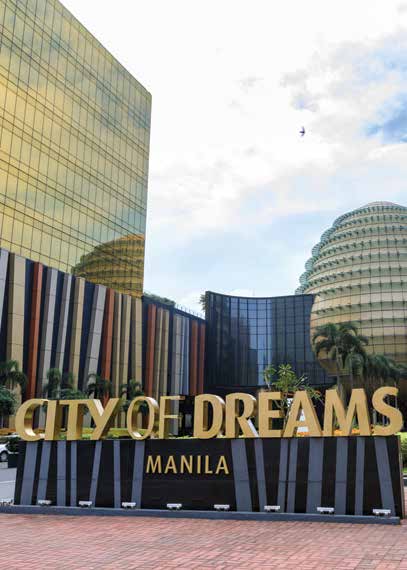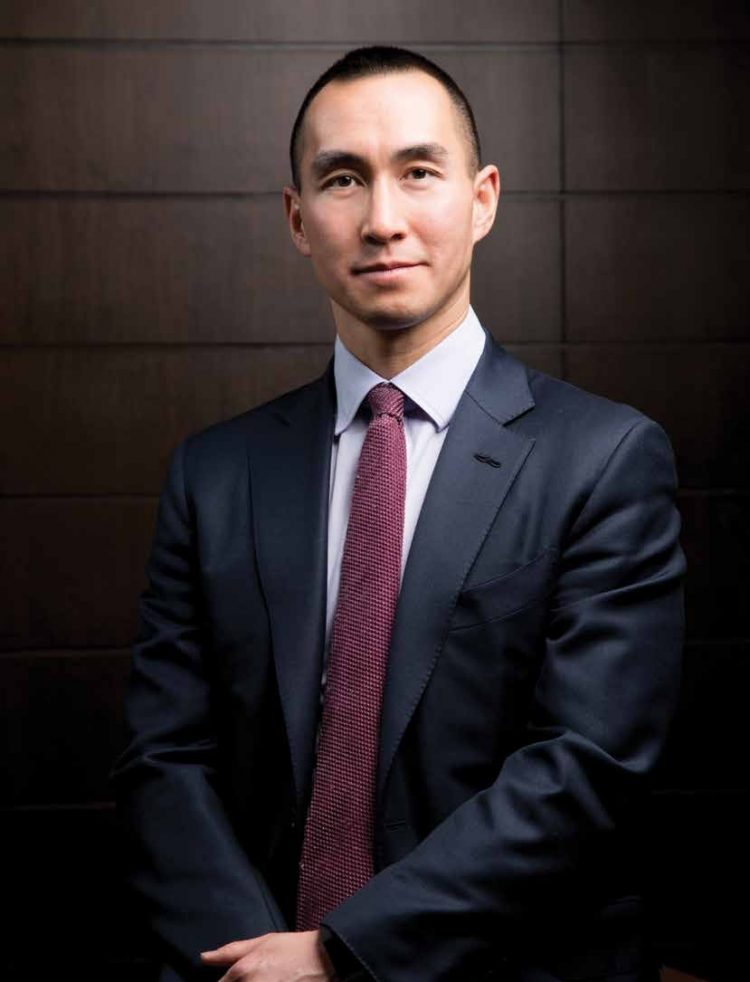Muhammad Cohen also blogs for Forbes on gaming throughout Asia and wrote Hong Kong On Air, a novel set during the 1997 handover about TV news, love, betrayal, high finance and cheap lingerie.
In an exclusive interview conducted shortly after Melco Resorts & Entertainment announced the sale of Crown Resorts’ last remaining shares in the former Melco Crown joint venture, IAG’s Muhammad Cohen spoke with Melco Resorts Chairman and CEO, Mr Lawrence Ho, about recent events and what the future holds for the prominent IR operator.
Muhammad Cohen: Thanks for granting us this exclusive interview, Mr Ho. Firstly, what was behind the decision to finalize the split with Crown now?
Lawrence Ho: Ultimately it’s the accumulation of the last 12 months. Melco Resorts bought back shares from Crown starting from May last year. The biggest transaction was last December. As part of our 10th anniversary of listing on NASDAQ, Melco International – which is the parent company – bought majority control from Crown. Crown had a remaining bit. So this is really a cleanup trade. It’s not so much Melco Resorts selling shares; it’s kind of a pass through transaction. Crown sold its shares and we helped them sell it. The underwriters took the whole block.
For us, we’re very excited. The timing of it worked out perfectly. A year ago I felt the market was hitting the bottom in Macau. I was also very excited about the opportunities ahead. That’s why we made the maneuver to start this transaction.
At the same time, I think it worked out really well for James [Packer, Crown Resorts’ controlling shareholder and Melco Crown’s former co-Chairman], because James and Crown wanted more liquidity and to focus on their Australian domestic assets. We’ve been great partners for over 12 years. In our press release, we talked about the world’s most successful gaming partnership, which was true, because if you look at gaming partnerships, they usually don’t end well and they’re never long. Both parties have been happy with it and we’re still great friends.
MC: Why not keep Crown as a shareholder?
LH: For Melco Resorts, this year is about simplifying. One of the articles you wrote about us is a kind of rallying point within the senior executive team because I totally agree with you. You wrote that we have these great parts but they never add up to the sum of the company. I couldn’t agree with you more. Why haven’t we been able to crack that? We have these great attractions, great hotels, the most Michelin star restaurants in Macau, the most Forbes five-star hotels, yet our valuation is never near the top of our competitors.
Everything we do, we compare ourselves to the relative set. We do very well, but from the enterprise value, EBITDA ratio perspective it’s never near Las Vegas Sands or Wynn – and we’re very comparable companies. The focus of this transaction has been to simplify, to bring down the board (Crown’s board member left as part of the sale), remove bureaucracy.

We’ve always been a very agile company. We’ve been able to maneuver and change our strategies when we have needed to. So when the market changes, if we’ve been underperforming in DIP [direct international premium], if we’ve been underperforming in mass, we’ve always made changes. This now allows us to make even quicker changes.
And again, the reason for the transaction was ultimately, I was a huge believer in Macau, in Asian gaming and more importantly the growing middle class globally. If you look globally, the next 15 years, there’s going to be 2.5 billion more people in the middle class globally, 85% of those – 2.1 billion people – coming from Asia. My thesis all along is: how do we capture more of them? So in Macau, the Philippines and hopefully in Japan, our goal is to really focus on the consumption power of this middle class.
To answer your question: why now? Because if you look at the transaction over the last 12 months, we bought the Melco Resorts shares between US$15.50 and US$18. I don’t look at share prices that often, but I think we’re US$22 or US$23 now. So I think the confidence in the market, the confidence in our management team, has manifested in some pretty significant value creation.
MC: Talking about simplifying, the next logical step would seem to be merging Melco Resorts and Melco International.
LH: We’ve looked into it. Melco International is Hong Kong listed. Melco Resorts is NASDAQ listed. But we are significantly simplifying our operations. The focus is at the Melco International level to become a pure holding company for Melco Resorts. So all the gaming assets, we will try to move them into Melco Resorts, subject to regulatory and shareholders’ approvals. The goal is to have all of the gaming activities at Melco Resorts and for Melco International to just be a holding company.
MC: The split with Crown puts you forward more than ever as the face of the company. Does that change your role?
LH: To be honest, it really doesn’t. The Crown guys were instrumental in the beginning. I wanted an international partner because I felt that back in 2004 there just wasn’t the expertize in Macau. But the last 10 years, it’s really been my team that’s been running it. The Crown guys participated at the board level and were very involved in that. Anything in the operations was really left to the team at Melco Resorts. It will probably [change] in simplifying in terms of having less directors. I’m going for less of everything, less board meetings and more results oriented.
MC: You don’t have an apparent deputy, no obvious second in command. Will that change?
LH: We’ve brought onboard some significant new people [Chief Marketing and Brand Officer Frederic Winckler, City of Dreams Macau Property President Gabriel Hunterton and Altira Macau and Mocha Clubs Property President Andy Choy in January], so I’m quite happy with the set-up we have. It has removed some silos as well. I had a COO, but not everything reported to the COO. It just created a lot of issues. I’m quite happy with the arrangement. We really work as a team. Yes, I have a lot of direct reports, but they all sit on my Executive Committee and at that level we talk about everything. Again, we’re a very agile company. We’ll see what works well and what doesn’t work well. If something doesn’t work well, I’ll make changes.
MC: Going back to the split with Crown, were the arrests of Crown personnel in China last October a factor? Was there any blowback from authorities in Macau, the Philippines or Japan? Was it a priority to separate from Crown and escape potential fallout from China?
LH: I wouldn’t say that was a primary factor. But I don’t know whether it was a factor for Crown in terms of why they wanted to get out. Naturally, the people in China, the 17 [Crown employees] that have been arrested haven’t been convicted yet, so let’s say they’re innocent. Let’s say if they were convicted, then it would raise issues for Japan and for both the [operating jurisdictions] but especially for Macau, since Macau is part of China.“Generally, a customer that likes Studio City is very different from a customer that likes City of Dreams. We’ve tried to position Studio City at more the mid-mass level and City of Dreams as being the premium mass leader and premium mass focused.”
MC: But was it a primary factor for you?
LH: Not a primary factor. Was it a factor at back of my mind and in the back of the Crown guys’ minds? I’m sure it was one of them.
MC: Without Crown, will Melco Resorts still, as you’ve said, do “whatever it takes” for an IR in Japan?
LH: Oh, absolutely. Even more so now. Previously, with Crown kind of pulling back and focusing on their domestic assets, even I had questions about their commitment to Japan. Because Japan, for me, really is whatever it takes. We’ll go all in. But if we had a strategic significant shareholder – we had been talking about Japan, they were still the second largest shareholder and it still involved a significant capital contribution. [Now] it’s even easier for us to go all in and focus on Japan.

MC: Overall, are there things Melco Resorts can do now that it couldn’t do with Crown as a shareholder?
LH: I don’t think so – other than strategic thinking at the board level, where it would involve a lot of convincing, hours and hours of convincing. If you look at our structure, at the local resort level we had Crown, which was at one time a 50-50 shareholder and subsequently became the second largest shareholder. At Studio City we have a 40% shareholder which is [US investment group] New Cotai. Even in Manila we have a significant partner in SM [controlled by that country’s richest man, Henry Sy]. Whenever you have a partner, it involves a lot of convincing. But I don’t think we would have done anything different. Crown, like us, was committed to quality and, most of the time, committed to doing what’s best. I don’t think it would have changed that much but just more hours in the boardroom.
MC: Would you like to simplify Studio City and buy out your shareholder?
LH: We’ve worked with New Cotai for six years now. It’s clear that those guys are very smart and very good at what they do. They’re distressed debt guys so there’s never going to be a scenario where we can take advantage and try to take them out at below market value. For us and New Cotai, the two sides can’t even agree on what’s fair market. We can always have a conversation, but our view is, for now, let’s just focus on operating the business as efficiently and as well as possible. If we do buy them out at a higher valuation somewhere down the road, so be it.
MC: But wouldn’t you rather send a player to City of Dreams because that’s 100% yours, versus Studio City which is only 60% yours?
LH: Macau is so competitive. That would have been an ideal scenario in that we can dictate where our players go. But Macau has so many great resorts and so many competitors competing for the same players, that has never worked out. We just let our players pick. What we’re really trying to do is bundle the experience so that players can enjoy both City of Dreams and Studio City. Ultimately, our customers and players have their own preferences. Generally, a customer that likes Studio City is very different from a customer that likes City of Dreams. We’ve tried to position Studio City at more the mid-mass level and City of Dreams as being the premium mass leader and premium mass focused. That has continued to hold true. In the end, we just want to capture as much of the market as possible.
MC: What happened with Hard Rock at City of Dreams? Are you still working together in Cyprus?
LH: Yes, we’re still working together in Cyprus – us, Hard Rock and our local partner [Cyprus authorities approved the consortium’s casino resort license on 18 May]. For Macau, with the Morpheus Tower opening next year, we felt that it was time for COD 2.0 – a whole new version of City of Dreams. You look at City of Dreams today, with all the retail offerings, it’s completely different from before. The new mall, the new department store, we’re very excited about it. We wanted to continue the facelift effectively. The truth is that with City of Dreams’ positioning – we want it to compete with the Wynns of the world and the high-end operators – we felt the Hard Rock brand was no longer relevant. This process will continue because it’s no secret that with Crown no longer being a shareholder, we are going to replace the Crown brand as well next year. It’s a big exercise for us, once Morpheus opens, to really unveil City of Dreams and the new hotel towers.
MC: Will you replace Crown at City of Dreams Manila, too?
LH: That is the intention. We have a year on the shareholders’ agreement to figure out what we want. I think they would be open to continuing the use of the brand. But at this stage, the fact that they are no longer a shareholder, we will offer our own brand going forward.
MC: Is Morpheus going to be that new luxury brand, replacing Crown?
LH: It will be another brand. Morpheus is for the designer tower. Our new Chief Marketing Officer [Frederic Winckler], who I hired from LVMH, he’s kind of super busy on overdrive now.
































